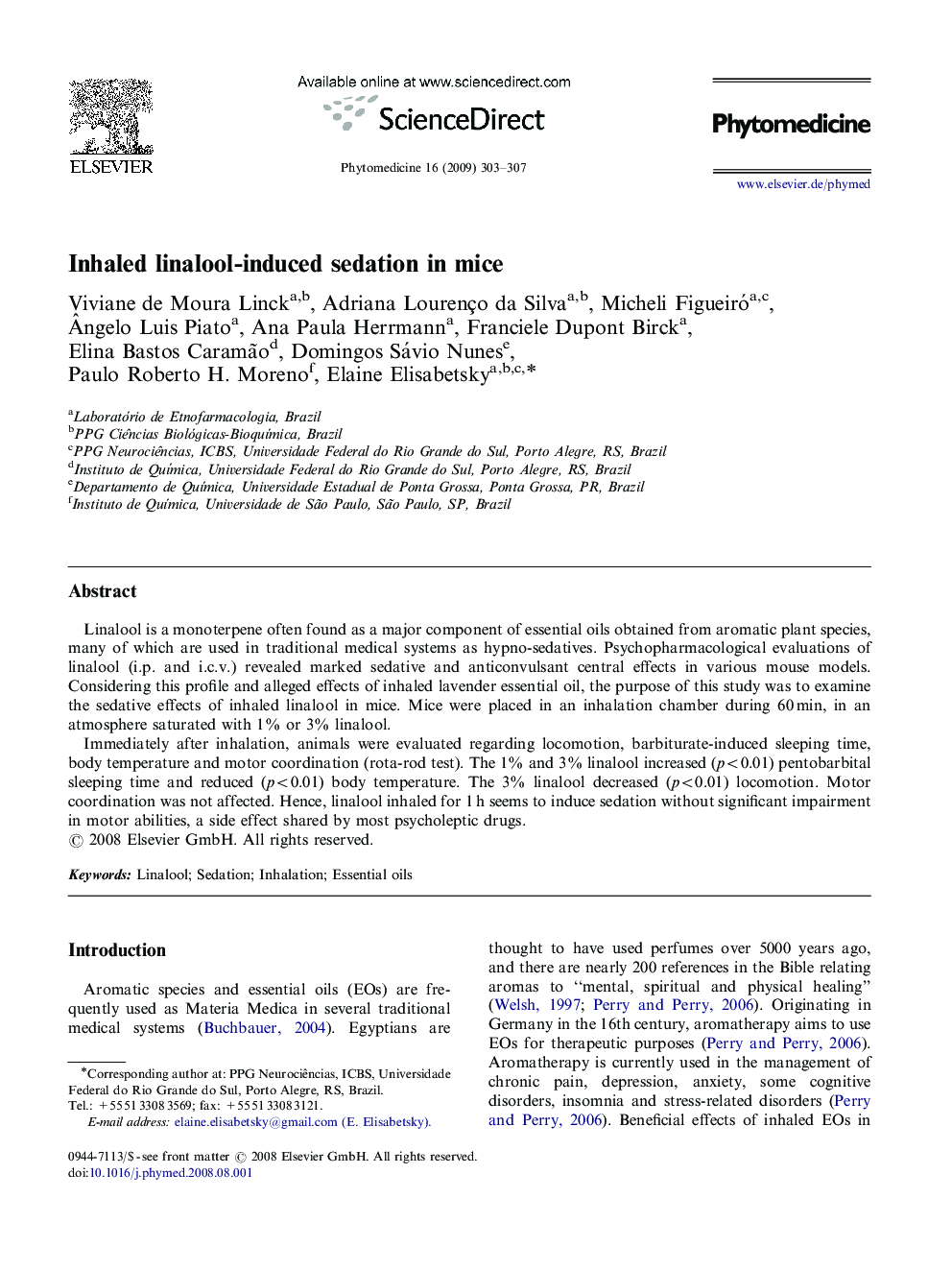| Article ID | Journal | Published Year | Pages | File Type |
|---|---|---|---|---|
| 2497306 | Phytomedicine | 2009 | 5 Pages |
Linalool is a monoterpene often found as a major component of essential oils obtained from aromatic plant species, many of which are used in traditional medical systems as hypno-sedatives. Psychopharmacological evaluations of linalool (i.p. and i.c.v.) revealed marked sedative and anticonvulsant central effects in various mouse models. Considering this profile and alleged effects of inhaled lavender essential oil, the purpose of this study was to examine the sedative effects of inhaled linalool in mice. Mice were placed in an inhalation chamber during 60 min, in an atmosphere saturated with 1% or 3% linalool.Immediately after inhalation, animals were evaluated regarding locomotion, barbiturate-induced sleeping time, body temperature and motor coordination (rota-rod test). The 1% and 3% linalool increased (p<0.01) pentobarbital sleeping time and reduced (p<0.01) body temperature. The 3% linalool decreased (p<0.01) locomotion. Motor coordination was not affected. Hence, linalool inhaled for 1 h seems to induce sedation without significant impairment in motor abilities, a side effect shared by most psycholeptic drugs.
